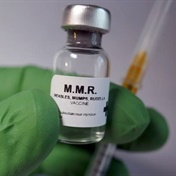
Obese children and teens have different types of bacteria living in their digestive tract to their normal-weight peers, a new study reports.
The researchers said this finding might eventually lead to a way to target specific species of bacteria and help prevent or treat early onset obesity.
Different gut bacteria
For the study, the researchers analysed the gut bacteria and weight of 84 young people between the ages of 7 and 20. Of these kids, 27 were obese, 35 were severely obese, seven were overweight and 15 were normal weight.
The children and teens underwent an MRI to assess their body fat distribution. They also gave blood samples and kept track of what they ate in a food diary for three days.
Read: Childhood obesity brings future health problems
The study authors found eight groups of gut bacteria that were linked to the amount of fat in the body. Four of them thrived more in the young people who were obese.
Smaller amounts of the other four bacteria groups were found in the young people who were obese than those who were normal weight. The researchers noted the gut bacteria of the obese kids were usually more efficient at digesting carbohydrates than the bacteria found in the young people who were not overweight.
The study was published in the Journal of Clinical Endocrinology & Metabolism. The American Heart Association and the US National Institutes of Health provided some of the funding for the study.
Higher levels of fatty acids
The research also found that obese children more often had higher levels of short chain fatty acids in their blood than the normal-weight children. These short chain fatty acids, which are produced by some types of gut bacteria, are linked with the production of fat in the liver, the researchers said.
"Our research suggests that short chain fatty acids can be converted to fat within the liver and then accumulate in the fat tissue," senior study author Dr Nicola Santoro said in a journal news release. He's an associate research scientist in Yale University's department of paediatrics, in New Haven.
"This association could signal that children with certain gut bacteria face a long-term risk of developing obesity," he added.
Obesity affects 17 percent of young people in the United States, according to the US Centres for Disease Control and Prevention.
Read more:
Breastfeeding cuts risk of childhood obesity
Parents underestimate obese kids' weight
Is obesity triggered by 'different' brain activity in kids?




 Publications
Publications
 Partners
Partners















